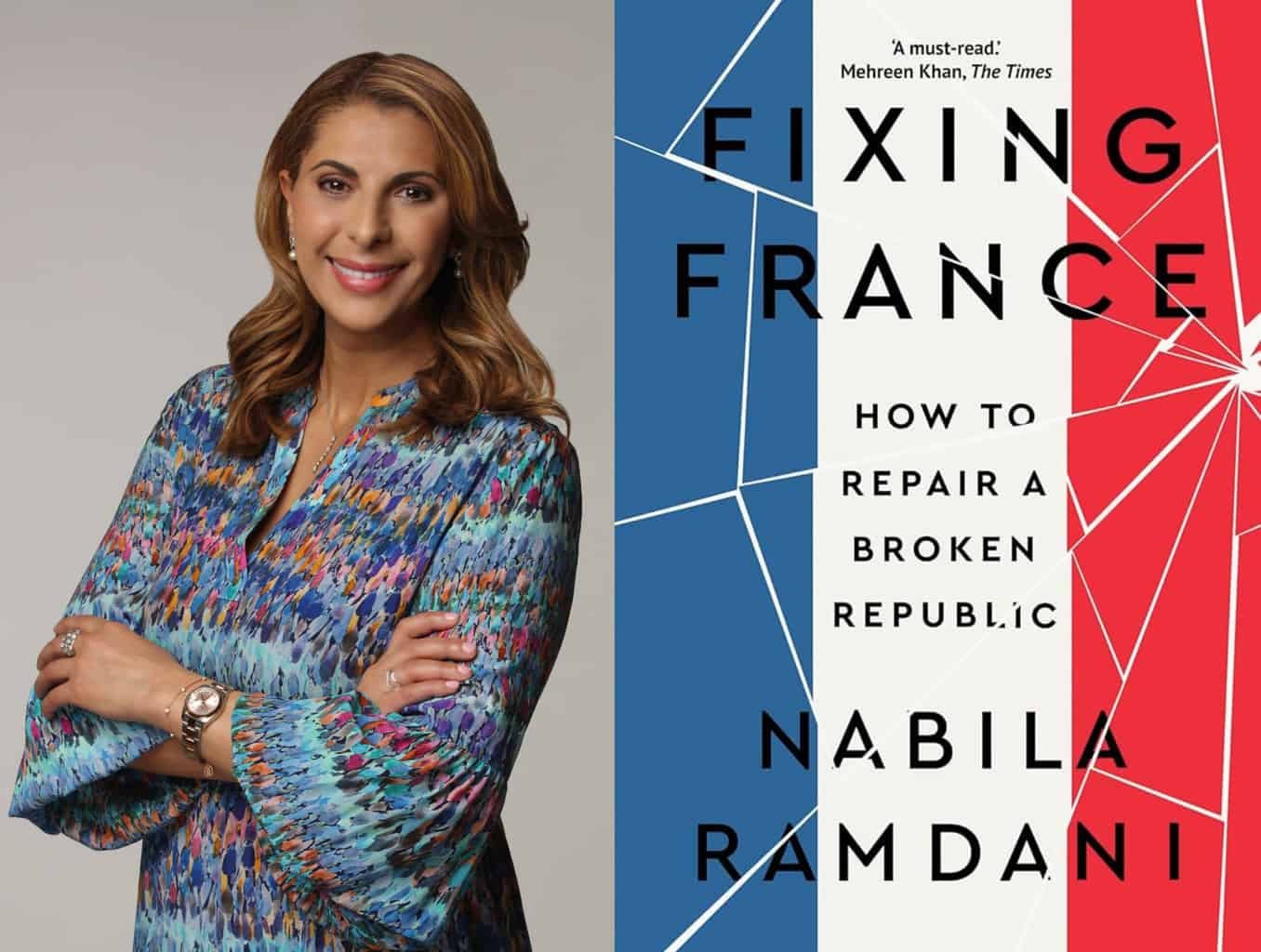“Hundreds of fresh graves have been discovered in the Darfur city of El Fasher, where Sudan's army and its enemy the paramilitary Rapid Support Forces have been locked in a weeks-long battle that has taken a heavy toll on civilians and destroyed large swaths of the city. The graves were identified in an analysis of satellite images by Yale University’s Humanitarian Research Lab. They are part of evidence that points to the large-scale of suffering and destruction in city, the capital of North Darfur state in western Sudan, and surrounding areas. At least 150,000 residents have been forced to flee El Fasher, already home to hundreds of thousands of displaced Sudanese escaping violence elsewhere in the vast and mostly desert region that has been mired in violence, including ethnically motivated killings, since the 2000s. The satellite images showed significant war-related damage to the city’s southern and south-eastern neighbourhoods where a significant number of members of the ethnic African Zaghawa tribe live, Yale HRL said. ‘The clear evidence that Zaghawa neighbourhoods in El Fasher are being destroyed by RSF confirms our worst fears,’ said Nathaniel Raymond, executive director. ‘For over a year, Yale HRL, among others, have been warning that if RSF enters El Fasher it would ethnically target non-Arab populations. Now we know they are.’” (Hamza Hendawi and Adla Massoud/The National News)
“While I have been thinking about maritime affairs this week, there has been a lot going on in the world. In the wake of the Chinese ‘punishment drills’ around Taiwan, Chinese Defence Minister Dong Jun has told the annual Shanghai La forum in Singapore that the PLA is ready to ‘forcefully’ stop Taiwan independence. While the Chinese desire to absorb Taiwan into China is not new, these comments represented an escalation in Chinese rhetoric. In Ukraine, we saw the Ukrainians exercising their new ability to employ US-supplied weapons in cross-border strikes against Russian military units on Russian territory. While President Biden has imposed a limit to ‘areas in proximity to the border’ and made explicit that ‘there will be no attack on Moscow’ this is a very positive development and allows the Ukrainians to undertake even more battlefield interdiction strikes against Russian 2nd and 3rd echelon forces including headquarters, logistics and air defence units. The U.S. also announced another package of military aid for Ukraine. This new package (you can see the details here) includes munitions that can now be fired across the border into Russia. France also announced that it would be providing Mirage 2000-5 fighter-bomber aircraft to Ukraine, which will complement the soon to arrive F-16 fighter aircraft.” (Futura Doctrina/Mick Ryan)
“In Fixing France: How to Repair a Broken Republic (2023), Franco-Algerian journalist Nabila Ramdani dissects the many failings of contemporary France, finding the still-warm imprint of the old colonial empire wherever she goes, from the racial inequalities that bedevil its social fabric to the modes of thought that dominate its politics. Ramdani writes with urgency and verve. Though ostensibly a plea for French renewal, her book sometimes reads—with ample justification—like a charge sheet against it. She treats Macron’s moves towards postcolonial reconciliation—his 2017 declaration on Algerian TV that colonialism was a ‘crime against humanity,’ for example—as political gestures rather than efforts at statesmanship, even failed or truncated ones. Ramdani is laceratingly critical of what she calls a ‘one-sided’ 2021 report, ordered by Macron, on France’s colonial history in Algeria, blaming the ‘settler profile’ of its author, Benjamin Stora—despite the fact that Stora was born in Algeria in 1950 into a Jewish family with antecedents in North Africa going back at least 2,000 years. Fixing France is a sharp polemic—necessary, revelatory, mostly fair, always driving to the point. It is a book to be read straight through, leaving readers shocked, energized, and better informed at its end. By contrast, an ambitious new collective history of France’s worldwide empire, Colonisations: Notre histoire (2023), is a book to be savored, to be dipped into. Made up of over 200 essays in French by historians from around the world (one of them Stora), it is an exercise in herding historical cats, directed by Pierre Singaravélou. The result is a sparkling tour de force, somehow belying the book’s physical, academic, and moral weight. As the pluralization in its title implies, Colonisations eschews any singular narrative of French empire. ‘And so should you,’ it seems to say. After all, how can you make sense of a phenomenon as slippery as colonization? It gets everywhere. The French Empire certainly did.” (Charles Emmerson/LARB)
“Donald Trump—convicted felon, aspiring authoritarian, and the man the GOP is proud to once again run as their presidential contender—has spent months auditioning potential running mates, casting a wide net of strivers, cynics, and flunkies to decide who gets second billing in the Trump Show. Now, that process appears to have entered its final stages. ABC News reports that the former president’s team has made vetting requests to at least seven Republicans—a short list that may not represent all under review but seems to reflect his top choices. His considerations? ‘Trump likes people who are rich and have hot wives,’ a source familiar with the vetting process told Politico.” (Eric Lutz/VF)
“As part of its multipolar geoeconomic strategy, the UAE is eager to capitalise on its strategic location between Asia, Africa, and Europe. The Emirates are keen be first movers in the developing economies of Africa and south-east Asia which are not easy to penetrate. Africa in particular receives special attention from the UAE for its potential in critical minerals and the energy industry. The UAE is already the second largest bilateral investor in the continent – alongside the US and behind only China – and plans to become a major stepping stone for international investors seeking to operate on the continent but with safer jurisdictions. The UAE instead views engagement in south-east Asia as a useful way to navigate the US-China rivalry. To escape its economic impact, many businesses are expected to relocate to the region, where the UAE has signed a number of trade liberalisation agreements, or Comprehensive Economic Partnership Agreements (CEPA) in anticipation. However, India is the most attractive of the UAE’s geoeconomic partners. Despite challenges stemming from India’s protectionism, cooperation is close on key areas, especially food security, technology, and connectivity. For the UAE, the new India-Middle East-Europe economic corridor (IMEC) will be crucial to deepen this connectivity. At the same time, however, the Emirates are staying close to their policy of multi-alignment: because China is the UAE’s largest trading partner, the Emiratis are careful to reject the idea that IMEC should be an alternative to China’s Belt and Road Initiative or a way to cut back trade with China. In a similar vain, despite Israel’s war in Gaza, the UAE remains interested in strengthening connectivity to Israel. In particular, it is cooperating with Tel Aviv to get around the bottlenecks on maritime trade caused by Red Sea tensions: in December Israeli and Emirati companies signed deals to facilitate an overland trade route from the UAE – through Saudi Arabia and Jordan – to the Israeli port of Haifa.” (Cinzia Bianco/ European Council on Foreign Relations)
“I spotted Candice Bergen at an event on Little Island tonight, so I rushed up to tell her I’m a fan. It’s very rare that I do that since I’m usually assuming my professional writer’s capacity, but I always felt she was underrated as an actress and was dying to tell her. I’m not talking about stuff like Murphy Brown or her Oscar nominated Starting Over, I’m talking about movies and plays she’s done where she was wildly underappreciated for her gifts. Well, I introduced myself and said, ‘I love your acting. It’s so direct, with no filter or artifice. It just comes right out and you’re always playing a real person. I loved you in The Women [movie remake] and in The Best Man [Broadway revival].’ She looked like I was putting her on. (Mickey Boardman) then swung around and said, ‘See, we have this movie club where we watch weird, offbeat movies…’ ‘I’m sure you do,’ deadpanned Candice, who looked ready to spew.” (Michael Musto)

“China’s economy is performing dreadfully. The post-pandemic bounce was far smaller and briefer than the Chinese government had anticipated. Despite recording a respectable, if diminished, official growth rate of 5.2 percent in 2023, the reality may have been much slower, with some analysts estimating growth was no more than 1-2 percent … Beijing has not stood still; it has expanded credit, put forth multipoint plans to reassure the private sector and foreign business community, reduced restrictions to buy a second home, and toned down the wolf-warrior rhetoric. But a substantial portion of people I encountered—which is not a scientific sample—have not been impressed, with these steps still adding up to too little, too late. There were four views that commonly came up on why Xi and other top leaders haven’t taken a different approach, which we might dub ‘The Four Nos’ in Chinese political style. The first is, ‘He doesn’t know.’ Some have speculated that Xi is being kept in the dark about the sour state of the economy by cadres who do not want to give him bad news for fear that he would blame the messenger. The second idea, ‘He doesn’t know what to do,’ is based on the premise that Xi and other top leaders are well informed but they are facing a variety of problems that are not easy to fix. The list is long—the real estate crisis, ballooning local government debt, the plummeting fertility rate, rising inequality, disaffection in Hong Kong, and expanding tensions with the West and most of China’s neighbors—and solutions are far from simple.” (Scott Kennedy/FP)
“There is an old joke. A student at Oxford attends a cocktail party with members of the faculty. Hoping to impress these august dons, the student casually mentions, ‘I was reading Gibbon the other night …’ Later, the student’s faculty mentor pulls him aside to chide him for the comment. ‘One must never say one is reading Gibbon,’ he says. ‘One must always say one is re-reading Gibbon’ … But while the impact and influence of Decline and Fall is almost impossible to overstate, we are not here to prove Gibbon wrote a uniquely significant work of history. He obviously did. We are here to ask whether Decline and Fall holds up. Is this a work that still deserves the power of authority it immediately wielded? Does it command attention and respect from the foremost practitioners of the historical discipline today? Should parents and teachers consider it a reliable guide to the Roman world to assign students in the twenty-first century? The short answer to all three of these questions is … no. Absolutely not. On all three counts. But before we single out Gibbon for skewering, we must first remember that no work written in the late eighteenth century in nearly any academic discipline holds up to modern scrutiny. Here in the twenty-first century, our corpus of knowledge is vastly superior to that in Gibbon’s time. Of course it is. We simply have more information, better sources, and superior analytic skills. So even cursory scrutiny of Decline and Fall reveals factual inaccuracies, distorted analysis, and polemical rhetoric that disqualify it from being considered an authoritative history of Rome in comparison to any work about Rome written by an expert in the field in the twenty-first century. That does not mean it’s worthless.” (Mike Duncan/TNR)
“Strikingly, many of the failures of U.S. weapons, including the HIMARS, in Ukraine have been due to their reliance on a highly vulnerable guidance system: GPS. The Russians, who have long devoted intense care and attention to electronic warfare, have proven increasingly adept at jamming GPS. This has been most witheringly expressed by Maria Berlinskaya, a pioneer in Ukraine’s use of drones and head of the country’s aerial reconnaissance support center, who recently stated that ‘most Western systems have proven to be [worthless]’ thanks to Russian jamming. Her gloomy assessment was confirmed in April by none other than William LaPlante, Under Secretary of Defense for Acquisition and Sustainment, who told a CSIS conference how a company (Boeing, though he did not name it) had proposed adapting their small diameter GPS guided bomb as a warhead for the HIMARS. It had been accordingly rushed through development and into production, with little or no testing, and shipped off to Ukraine. ‘It just didn’t work,’ admitted LaPlante, thanks to Russian GPS jammers that threw it off course and caused it to miss. The same sad fate seems to have befallen the Skydio drone, product of an eponymous Silicon Valley startup, whose AI features trumpeted by the company - ‘Skydio drones have the compute capacity to see, understand, and react in real time’ - did not prevent it from being driven off course by Putin’s jammers … Needless to say, none of these assorted failures were anticipated by the U.S. military high command, few of whom would be eager to denigrate the wares of contractors with lucrative post-retirement board seats on offer. We might hope that our senior civilian leadership would be aware of such biases and temper their expectations accordingly.” (Andrew Cockburn/Responsible Statecraft)
“One of the most famous interruptions in literary history is the strange case of Samuel Taylor Coleridge and the Person from Porlock. The story goes that in the summer of 1797 Coleridge was at home in the village of Nether Stowey, Somerset. The cries of birds echoed across the gentle Quantock hills—warblers and whinchats, stonechats, pipits and nightjars. Coleridge was asleep and dreaming vividly (opium may have been taken). Upon emerging from his stupor, he realized that he had dreamed a vast, wondrous poem—“Kubla Khan.” He dashed off to find a pen, ink, and paper, and began scribbling everything down: the famous opening “In Xanadu did Kubla Khan / A stately pleasure-dome decree” followed by another fifty-odd lines of sparkling verse. But then: a knock on the door, an interruption! A ‘Person from Porlock’ had arrived on business, and distracted Coleridge for a long, tedious interval. When our poet finally returned to his desk, the vision had faded. Coleridge published “Kubla Khan” as a ‘fragment’ and blamed the Person from Porlock for depriving posterity of the complete work. Since then, the Person from Porlock has become a symbol of unwanted interruptions, poetic genius demolished by tawdry reality, the dangers of answering the front door, and so on. Nonetheless, a few people have questioned Coleridge’s story. In a short poem, “The Person from Porlock,” Robert Graves suggests that if anything we could do with an army of such persons hammering on doors and interrupting solipsistic writers, as a form of quality control. The poet Stevie Smith also presents her views on Porlockgate in ‘Thoughts about the Person from Porlock.’ For a start, asks Smith, why did Coleridge rush to answer the door? Why didn’t he just hide like any self-respecting misanthropic author? Smith concludes that Coleridge was already stuck, weeping and wailing’ over his poem, ‘hungry to be interrupted.’ The advent of the Porlock Person was, in fact, a huge relief. Douglas Adams’s 1987 novel Dirk Gently’s Holistic Detective Agency imagines a parallel world in which Coleridge finished ‘Kubla Khan,’ without any interruptions. In Adams’s witty counterfactual, the finished version of ‘Kubla Khan’ is imbued with some weird power to destroy humanity. A time-traveling detective, Dirk Gently, is dispatched to eighteenth-century Somerset to play the Person from Porlock (who, in this reality, doesn’t exist) and ensure that Coleridge never finishes his poem. One trouble with interruptions, Adams suggests, is that, on a cosmic level, we have no way of knowing if they’re good or bad.” (Joanna Kavenna/Paris Review)
—-—-—-—-—-—-—-—-—-—-—-—-—-—-—-—-—-—-—-—-—-—-—-—-—-—-—-—





